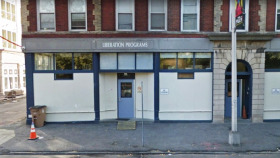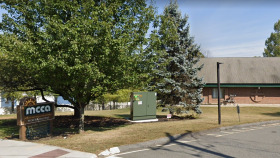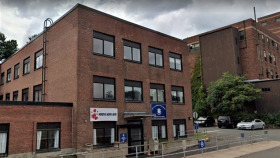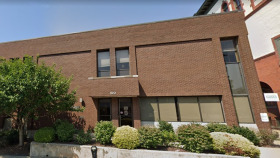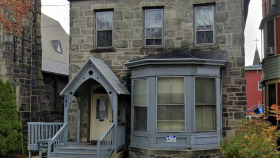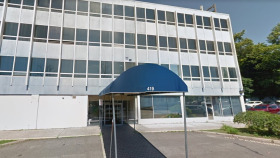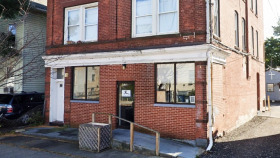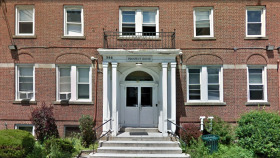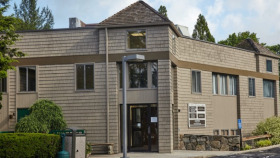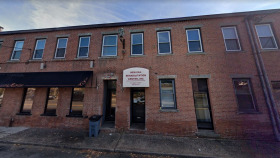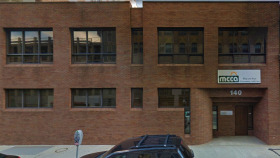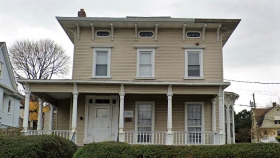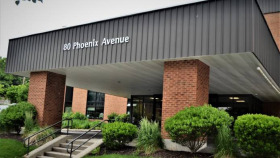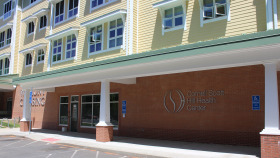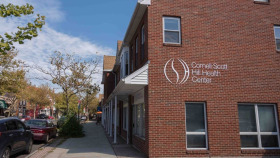Expert Insights
In Connecticut, a 2022 State Department of Health report on addictions and co-occurring disorders found that half the individuals accessing addiction treatment in the state also had a mental health condition.
However, clients do not always reveal the existence of mental health symptoms and these conditions can go undiagnosed and untreated. People with untreated co-occurring disorders have a greater risk of homelessness, self-harm and substance abuse treatment failure.
As a psychotherapist, I urge clients to seek drug treatment when needed and get screened for co-occurring disorders during their assessment. This may improve rehab treatment outcomes and overall life experiences as well.
~ Rita Milios, LCSW, SAP
How Much Does Drug Rehab Cost in Connecticut?
Connecticut is ranked 35th nationwide in terms of addiction treatment affordability, with an average cost of drug and alcohol rehab of $57,667 (without insurance).
- Medical detox is the most expensive, with an average cost of $142,170
- Long-term inpatient drug rehab in Connecticut costs an average of $50,888
- Outpatient addiction treatment in Connecticut costs an average of $8,456
- Outpatient methadone treatment is the most affordable, with an average cost of $7,513
Many rehabilitation programs accept a variety of insurance plans, offer sliding scale fees, or are free. There are many factors to consider when calculating the cost, and the cost varies from center to center. Some factors that influence what you will pay include:
Treatment setting (inpatient vs. outpatient)
Amenities (luxury or special features)
How long you will receive treatment
Insurance acceptance
Available subsidies or donations
Location
For example, the longer you need care, the higher the cost. And inpatient, which provides 24/7 care, costs more than outpatient. The type and length of your program should be determined by your needs, not your ability to pay. However, for those who need it, an affordable treatment center can be found.
How to Pay for Drug Rehab in Connecticut
As of 2024, there were over 230 drug rehab facilities across the state of Connecticut. These facilities accept several payment methods. Of those treatment facilities, the following numbers reflect how many accept their respective payment methods:
Addiction treatment centers can offer a variety of payment options for Connecticut residents, including state or federally funded programs or insurance coverage, sliding scale fees, and grants and scholarships. Substance abuse treatment is not a luxury. It is necessary to achieve sobriety and live as a contributing and healthy member of society.
Private Pay + Insurance
Insurance is healthcare coverage provided by non-government agencies, such as private companies or employers. It requires you to pay a premium either directly to the company or through your employer. Health insurance offers a broad range of services and plans can vary significantly in terms of coverage, cost, and benefits.
However, there are federal laws that protect your right to mental health and substance abuse treatment, with some exceptions. The laws include the 2008 Mental Health Parity and Addiction Equity Act and the 2010 Affordable Care Act. Some people choose to self pay or private pay for their addiction treatment so the insurance company and employer are unaware. These are some of the major insurance providers in Connecticut.
- Access Health Connecticut
- Anthem Blue Cross Blue Shield of Connecticut
- Cigna Health and Life Insurance
- Compass Rose
- ConnectiCare Benefits
- Connecticut Health Insurance Plans
- HPHC Insurance Company
- HUSKY Health Plan
- Oxford Health Plans
- Special Agents Mutual Benefit Association
- UnitedHealthcare Insurance Company
Medicaid
Medicaid is a joint federal and state program that provides healthcare coverage to low-income individuals and families. You must meet eligibility requirements to receive coverage, including income level, Connecticut state resident, Social Security number, and citizenship. Medicaid covers essential healthcare services such as hospital care, doctor visits, long-term care, and substance use and mental health condition treatment.
You can apply online and find out if you qualify through the Health Insurance Marketplace. The Connecticut Department of Social Services supports the Connecticut Medical Assistance Program and offers online resources, billing manuals, and program regulations for providers, hospitals, and patients.
Medicare
Medicare is a federal insurance program. Medicare Part A covers hospital and inpatient care and Medicare Part B covers outpatient care and doctor visits. Some people purchase a Medicare Advantage plan, which is a premium based managed care policy that sometimes includes additional benefits. Medicare covers substance abuse and mental health care treatment when you meet eligibility requirements. Original Medicare and Medicare Advantage plans are available to people over age 65.
More than 78,000 Connecticut residents are enrolled in Medicare and well over half have Medicare Advantage plans. Addiction treatment center financial counselors can advise you if they accept Medicare and will verify your coverage. Prior authorization may be required before you can start treatment. This may include documented diagnosis and additional documentation that treatment is medically necessary.
Military Insurance
TRICARE is military health insurance available to active military personnel, retirees, and their families. The insurance plan splits the U.S. into two regions – East and West. Humana manages the TRICARE East Region for Connecticut residents. Connecticut also offers benefits to service members, veterans, and their families, including employment preferences, vehicle tags, and education and tuition assistance. Your eligibility depends on your residency status, veteran disability status, and your service in the military.
Retired service members living in Connecticut are exempt from paying income taxes on their military retired pay when the pay is taxed on their federal income tax return. Disability pay is also not taxed in Connecticut.
Tribal Funding and Programs
Connecticut has a diverse Indigenous community and Connecticut recognizes three Nations – the Eastern Pequot, Golden Hill Paugussett, and Schaghticoke tribes. The federal and state governments recognize another two – the Mashantucket Pequot and Mohegan Nations.
The Mashantucket Pequot/Mohegan Fund distributes grants for educational use and to help support general hospitals. According to Connecticut Grant Watch, eight of the 35 substance abuse grants given throughout Connecticut are aimed at tribal communities.
Other Low-Cost Options
Treatment centers may also offer other low cost options to help you meet financial obligations for addiction treatment. The quickest way to receive treatment is a personal loan you can get from the bank or friends and family. While a loan from the bank offers greater confidentiality, loans from friends and family typically come with much lower interest rates and a repayment plan you can customize to meet your needs.
A personal loan can also help you receive care while you wait to secure funds from other areas. For example, some treatment centers offer sliding scale fees or payment plans to help you pay for treatment or the fees associated with your insurance coverage, such as deductibles, copays, and coinsurance.
Local organizations may offer grants and scholarships. Faith based organizations typically offer treatment at low to no cost. Employee Assistance Programs may help you find resources in the community covered by the program and some offer financial assistance to cover the cost of addiction treatment centers. The financial aid options vary depending on the rehab center, geographical location, and whether they accept state or federal funding programs such as Medicaid or Medicare.
Low-Cost and Free Drug Rehab Centers in Connecticut
As of 2024, there were over 230 drug rehab facilities across the state of Connecticut. These facilities accept several payment methods. Of those treatment facilities, the following numbers reflect how many offer free and low-cost addiction treatment services:
Throughout Connecticut, there are several low-cost or free addiction treatment facilities for those who can’t otherwise afford professional help. They are able to provide low-cost care through government funding, grants, or donations.
Free alcohol and drug rehab centers in Connecticut are often highly sought out, so depending on how they are funded, they may have guidelines to prioritize specific populations if space is limited. These spots usually go to:
- Pregnant people
- Single mothers
- People who use injection drugs
- People with co-occurring disorders
Free Addiction Treatment Resources in Connecticut
DrugFreeCT
The organization helps residents understand and recover from addiction. They offer education and resources for employers when the organization is affected by substance abuse. The site offers information about drug use, warning signs, statewide initiatives, and strategies to prevent overdose. They help residents find access to addiction treatment and recovery support.
Connecticut Community for Addiction Recovery
Connecticut Community for Addiction Recovery offers a range of support services, telehealth recovery support, coaching programs, and help for young people and families. They offer training to become a certified recovery coach. The organization also offers a virtual recovery community, connecting you with meetings and groups online.
Connecticut Harm Reduction Alliance
The organization provides practical strategies and ideas to prevent drug use. This is also a social movement to protect the rights of people who use drugs, are homeless, and are sex workers. They offer overdose prevention training and supply Narcan free to participants.
Mercy Housing and Shelter
Founded in 1983, the organization provides supportive housing, and residential programs for homeless adults and uses evidence based approaches to end homelessness. They provide shelter services at St. Elizabeth House called The Friendship Center. Services are for people who are homeless or at risk of homelessness.
Turning Point CT
Turning Point Connecticut addresses the needs of populations with mental health conditions, substance use disorders, and addiction. They help veterans with Post Traumatic Stress Disorder and after traumatic brain injury. They also maintain an interactive map to help you find resources around the state.
Connecticut Alcohol and Drug Use Statistics
A closer look at Connecticut’s 2019 statistics show:

13% of teens used alcohol in the previous month.

9.8% of teens used illicit drugs.
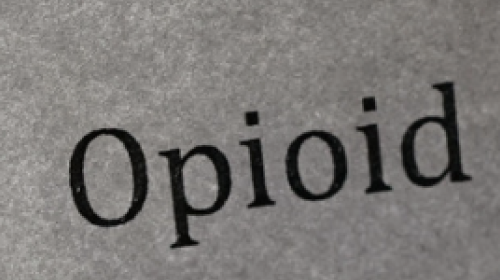
3.5% of residents engaged in past-year prescription opioid misuse.

3.1% of people used illicit drugs in the previous year.
Drug Laws in Connecticut
Driving Under the Influence
Operating a vehicle under the influence is a criminal offense that may be prosecuted when your blood alcohol concentration is 0.08 or higher. If arrested, charged, and convicted, the penalty for a first offense is a 45-day driver’s license suspension. Reinstating your license requires an Ignition Interlock Device that tests your breath and measures your alcohol level before being able to start your car.
Marijuana Laws
The state decriminalized the possession of small amounts, which usually means no criminal record or prison time for a first offense for personal use. Medical use is approved when you have a debilitating condition and can receive the marijuana from a licensed dispensary. Despite these changes, you can still be charged with a crime.
Naloxone Use
There are several laws that provide for distribution of naloxone to prevent an opioid overdose. Public Act 14-61 provides immunity to people who administer an opioid antagonist during an overdose to protect them from civil liability and criminal prosecution. Public Act 18-166 requires substance use treatment programs to provide training to clients and families on how and when to use Naloxone.
Cocaine Laws
Connecticut has been a popular way to distribute cocaine to the midwest U.S. in rock and powder form. Possession, sale, and trafficking is a felony. An arrest and conviction for possession can incur penalties ranging from up to seven years in prison and $50,000 fines for a first offense and up to 25 years in prison and/or $250,000 in fines for a third offense.
Good Samaritan Law
The Good Samaritan Law provides immunity from civil liability and criminal prosecution for rendering aid during an emergency. The law details situations to protect school teachers, school personnel, firefighters, and police officers, and more. However, the immunity provided by the Good Samaritan Law doesn’t apply to gross or willful negligence.
Resources
- Substance Abuse and Mental Health Services Administration. (2022, April 14). Substance Abuse Prevention and Treatment Block Grant.
- Mentalhealth.gov. (2020). Health Insurance and Mental Health Services.
- Center for Medicare Advocacy. (2022). Medicare Coverage of Mental Health and Substance Abuse Services.
- Drugs.com. (2022, June 1). Suboxone.








